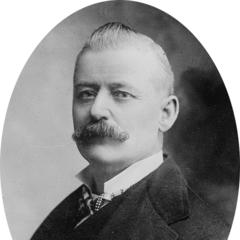Vices Quotes - Page 20

I am a great friend to public amusements; for they keep people from vice.
"The Sayings of Doctor Johnson".
Samuel Johnson (1810). “The Works of the English Poets, from Chaucer to Cowper: Including the Series Edited with Prefaces, Biographical and Critical”, p.267
Quoted in James Boswell, The Life of Samuel Johnson (1791) (entry for 14 July 1763)
In 'European Magazine' (1795) p. 82
Virtue is defined to be mediocrity, of which either extreme is vice.
Diary entry. "Diary and Letters of Rutherford Birchard Hayes: Nineteenth President of the United States". Book edited by Charles Richard Williams, The Ohio State Archaeological and Historical Society, December 21, 1843.
Party spirit enlists a man's virtues in the cause of his vices.
Richard Whately (1856). “Thoughts and Apophthegms: From the Writings of Archbishop Whateley”, p.95
Religion is the most inflammatory enemy-labelling device in history.
Richard Dawkins (2004). “A Devil's Chaplain”, p.159, Houghton Mifflin Harcourt
A nice state of affairs when a man has to indulge his vices by proxy.
Raymond Chandler (2011). “The Big Sleep & Farewell, My Lovely”, p.15, Modern Library
Ralph Waldo Emerson (2009). “The Essential Writings of Ralph Waldo Emerson”, p.635, Modern Library
Ralph Waldo Emerson (1983). “Essays and Lectures”, p.385, Library of America
Though ambition may be a fault in itself, it is often the mother of virtues.
Quintilian (2015). “Delphi Complete Works of Quintilian (Illustrated)”, p.26, Delphi Classics
Flattery was formerly a vice; it has now become the fashion.
"Hoyt's New Cyclopedia Of Practical Quotations" by Jehiel Keeler Hoyt, p. 276-77, Maxims, 1922.
Socrates, Plato, Aristotle (1967). “Wit and Wisdom of Socrates, Plato, Aristotle: Being a Treasury of Thousands of Glorious, Inspiring and Imperishable Thoughts, Views and Observations of the Three Great Greek Philosophers, Classified Under about Four Hundred Subjects for Comparative Study”
Virtue, thou in rags, may challenge more than vice set off with all the trim of greatness.
Philip Massinger (1761). “Dramatic works”, p.261






